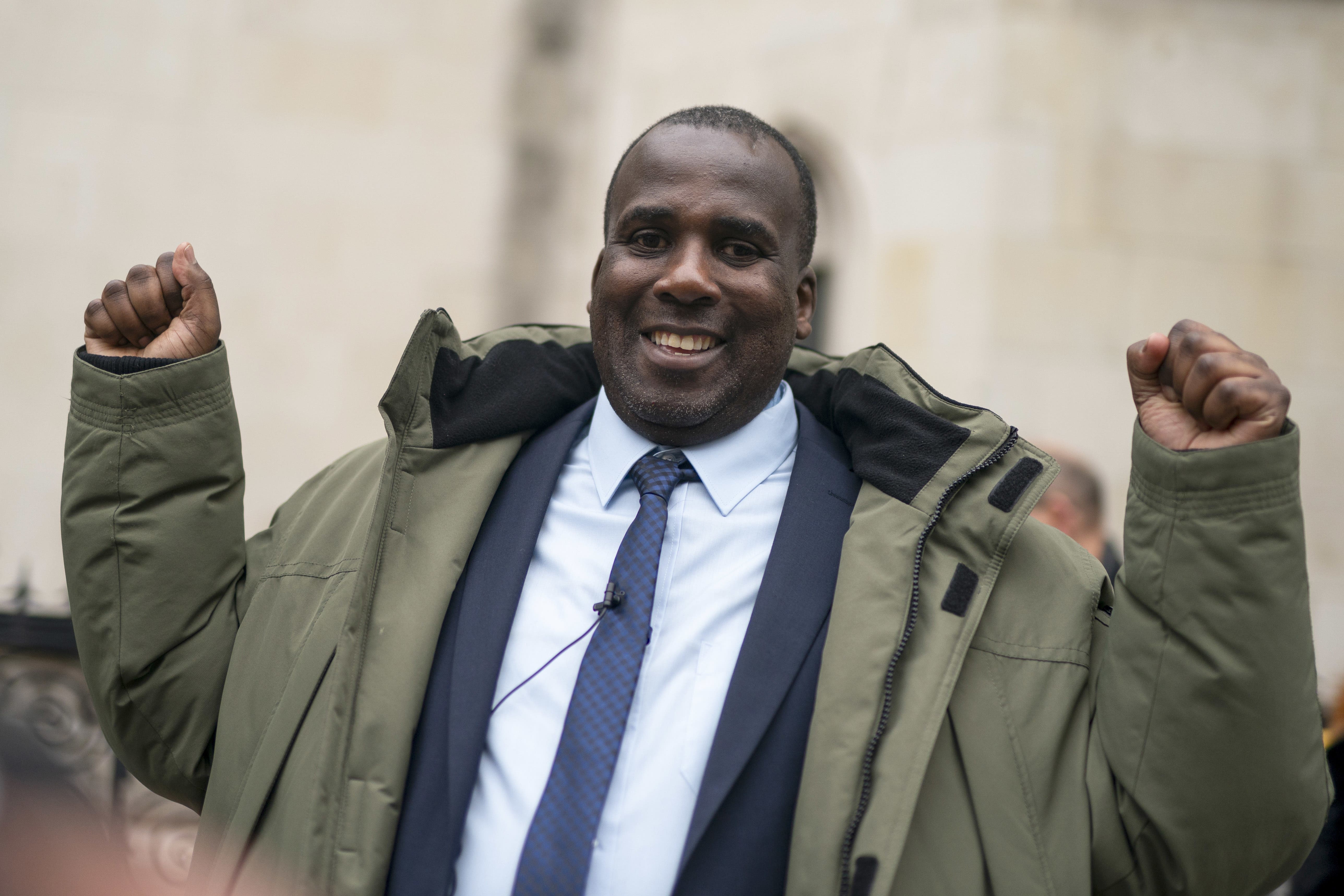Man jailed in 1991 for murder of London shopkeeper has conviction quashed
Oliver Campbell was convicted of the murder of Baldev Hoondle in Hackney in July 1990.

A man with learning disabilities who was jailed for life in 1991 for the murder of a shopkeeper in London has said his “fight for justice is finally over” after his conviction was quashed by the Court of Appeal.
Three judges ruled on Wednesday that Oliver Campbell’s conviction for the murder of Baldev Hoondle in Hackney in July 1990 was “unsafe”.
Mr Campbell was 21 when he was jailed following a trial at the Old Bailey, having also been convicted of conspiracy to rob, after Mr Hoondle was fatally shot.
The fight for justice is finally over after nearly 34 years. I can start my life am innocent man
At a hearing in February, barristers for Mr Campbell, who suffered severe brain damage as a baby, said he was “badgered and bullied” by police into giving a false confession.
His case was referred to the Court of Appeal by the Criminal Cases Review Commission (CCRC), which investigates potential miscarriages of justice, in 2022, despite previously declining to refer the case in 2005.
While his barristers told the court in February that this was the “wrong decision”, they said there was “compelling” new evidence proving Mr Campbell “cannot be” the killer.
In their ruling, Lord Justice Holroyde, sitting with Mr Justice Bourne and Mrs Justice Stacey, dismissed arguments related to “serious allegations” against police officers, but said new evidence around Mr Campbell’s “mental state” meant they had “concluded that the convictions are unsafe”.
Following the judgment, Mr Campbell, now in his 50s, told the PA news agency: “The fight for justice is finally over after nearly 34 years.
“I can start my life an innocent man.”
Mr Campbell suffered severe brain damage as an eight-month-old baby and continues to struggle with memory, concentration and retaining information.
His barrister, Michael Birnbaum KC, told the court earlier this year that there were “ample” grounds to find Mr Campbell’s conviction unsafe, suggesting that he was “dangled with the temptation” by police of falsely admitting the killing was an accident.
Mr Birnbaum said Mr Campbell’s learning disabilities meant he made admissions which were “simply absurd”, and “nonsense”, and contained a “litany of inconsistencies” against the facts of the case.
The court heard that officers may have “deliberately lied” to adduce confessions from Mr Campbell, who was interviewed 14 times but in some cases did not have a solicitor or appropriate adult present, which Mr Birnbaum said was “disgraceful”.
Forensic psychologist Professor Gisli Hannes Gudjonsson also told judges there was a “high risk” that Mr Campbell’s mental disabilities meant he gave a false confession as a form of “acquiescence” during “relentless” questioning.
Mr Birnbaum said Mr Campbell’s learning difficulties meant he was “out of his depth” and “simply unable to do justice to himself” when giving evidence.
In their ruling, Lord Justice Holroyde said there was no evidence for claims of “manipulation, deliberate misleading and bullying” made against some officers, and that “accusing many persons of incompetence and/or impropriety” was “no more than an attempt to re-run the trial in a different way”.
But he said new evidence on understanding Mr Campbell’s learning difficulties meant a jury’s decision today “might be different”.
The detectives were plainly convinced that, since he was the owner of the hat and had admitted a presence at the robbery, he must have been the shooter, and they were determined to get him to admit that fact
He continued: “A jury knowing of the fresh evidence would be considering the reliability of those confessions in a materially different context.
“In those circumstances, we cannot say that the fresh evidence could not reasonably have affected the decision of the jury to convict.”
Judges heard that jurors in the original trial were told the gunman wore a British Knights baseball cap, which was found a few hundred yards from the scene.
Mr Birnbaum said Mr Campbell had purchased the cap in the days before the killing, but hairs found inside it following the shooting were not his, and he was not picked out of an identity parade by Mr Hoondle’s son, despite him having come “face to face” with the gunman.
The barrister said detectives were “plainly convinced” that as Mr Campbell owned the hat, he “must have been the shooter” and were “determined to get him to admit” his role.
He continued that Mr Campbell believed admitting the incident was an accident was “his least bad option”.
Mr Campbell’s co-defendant at trial, Eric Samuels, who has since died, was cleared of murder but was jailed for five years after admitting robbery, but Mr Birnbaum said there was “irrefutable” evidence that he “told people over 10 years that Oliver was not with him in the robbery”, which was not said at trial.
As a result of the fresh expert evidence, the whole approach to the case would now be informed by a different and better understanding of relevant factors
In the 30-page judgment, Lord Justice Holroyde added that the new evidence would have given the original trial “much more information” about Mr Campbell’s “mental state when he made his confessions”.
“As a result of the fresh expert evidence, the whole approach to the case would now be informed by a different and better understanding of relevant factors,” he said.
He added that the decision would be a “heavy blow” to Mr Hoondle’s family, but “trust that they will understand that we must reach our decisions in accordance with the law, uninfluenced by emotion”.
Following the ruling, a spokesman for the Crown Prosecution Service, which opposed the bid, said: “The Court of Appeal rejected 17 grounds of appeal and these convictions were only quashed on the basis of new evidence providing more information about Oliver Campbell’s mental state when he confessed to murder.
“We respect the judgment of the court.”
